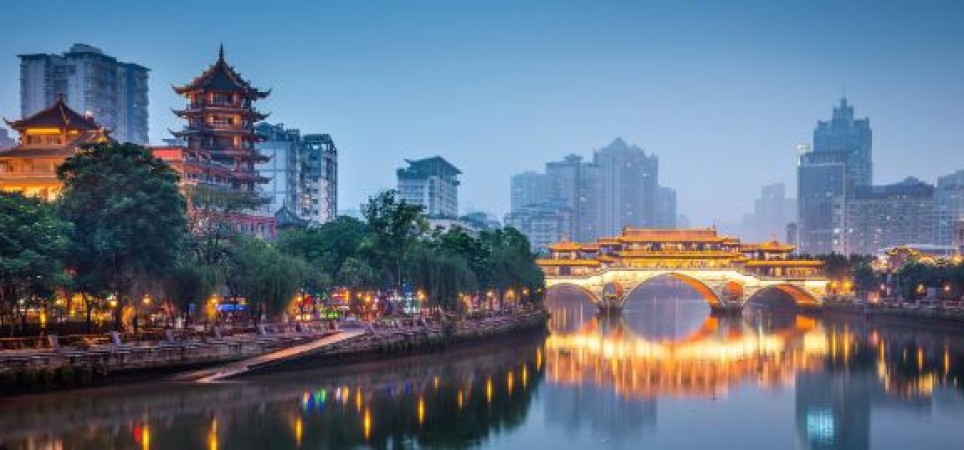
Nestled in the heart of China's Sichuan province, Chengdu stands as a captivating city that seamlessly blends its rich history with contemporary urban life. As one of China's oldest cities, Chengdu boasts a profound cultural heritage that dates back over 3,000 years. Today, it has emerged as a dynamic metropolis known for its vibrant culture, gastronomic delights, and as the gateway to the mesmerizing Sichuan region.
Historical Heritage: Chengdu's history is steeped in legend and myth. According to ancient tales, the city was founded by Emperor Tai in the 4th century BC. Over the centuries, it evolved into an essential cultural, economic, and political hub. The city's name itself, "Chengdu," means "Becoming a Capital," which reflects its status as a former capital of the Shu Kingdom during the Three Kingdoms period (220-280 AD). Among the most prominent historical sites in Chengdu is the Wuhou Shrine, dedicated to the memories of Liu Bei, the Emperor of Shu, and Zhuge Liang, his brilliant military strategist. The Jinli Ancient Street, a bustling marketplace lined with traditional architecture, offers visitors a glimpse of Chengdu's ancient charm. Furthermore, the Dufu Thatched Cottage is a serene spot that honors the revered poet Du Fu, who lived during the Tang Dynasty.
Panda Conservation: Chengdu is also renowned for its commitment to the preservation of one of China's most beloved creatures—the giant panda. The city is home to the Chengdu Research Base of Giant Panda Breeding, a world-famous facility dedicated to panda conservation and research. Visitors can witness these cuddly black and white bears in their natural habitat, contributing to the efforts to protect this endangered species.
Gastronomic Capital: Ask any Chinese food enthusiast about Chengdu, and they'll undoubtedly sing praises of the city's cuisine. Sichuan cuisine, known for its bold flavors and liberal use of chili peppers and Sichuan peppercorns, has found a home in Chengdu. The city's culinary delights, such as mapo tofu, kung pao chicken, and hotpot, have gained international recognition. Foodies from around the globe flock to Chengdu to indulge in its spicy and mouthwatering delicacies.
Modern Urban Oasis: As a rapidly growing modern city, Chengdu has also embraced contemporary lifestyles. The cityscape is adorned with sleek skyscrapers, shopping malls, and recreational parks. Tianfu Square, a bustling central plaza, serves as a focal point for public gatherings and cultural events. The city's efficient transportation system, including its extensive subway network, makes exploring the city and its surrounding areas a breeze.
ALSO READ: Exploring the Enchanting Marvels of Bangkok
Cultural Hub: Chengdu's cultural scene thrives with theaters, art galleries, and music venues, exemplifying the city's creative spirit. The Sichuan Opera, famous for its vibrant face-changing performances and acrobatics, captivates audiences with its unique artistry. The city hosts numerous festivals, such as the Jinsha Sun Festival, showcasing traditional music, dance, and handicrafts. Chengdu's friendly locals, known for their hospitality and relaxed attitude, add to the city's allure. A visit to the teahouses, where people gather to sip tea and engage in leisurely conversations, epitomizes Chengdu's laid-back lifestyle.
ALSO READ: Incredible Canada: 9 Best Places for a Fantastic Family Vacation
Conclusion : Chengdu stands as a living testament to the harmonious blend of history and modernity. Its ancient treasures and vibrant cultural scene enthrall visitors, while its gastronomic delights leave a lasting impression. As Chengdu continues to evolve, it remains a captivating destination for travelers seeking a taste of both China's storied past and its exciting future.
Shanghai: The Dazzling Metropolis of the East
Kenya: A Journey into the Heart of East Africa
The Spirit of Shaivism: Lakulisa Temple's Journey through Time